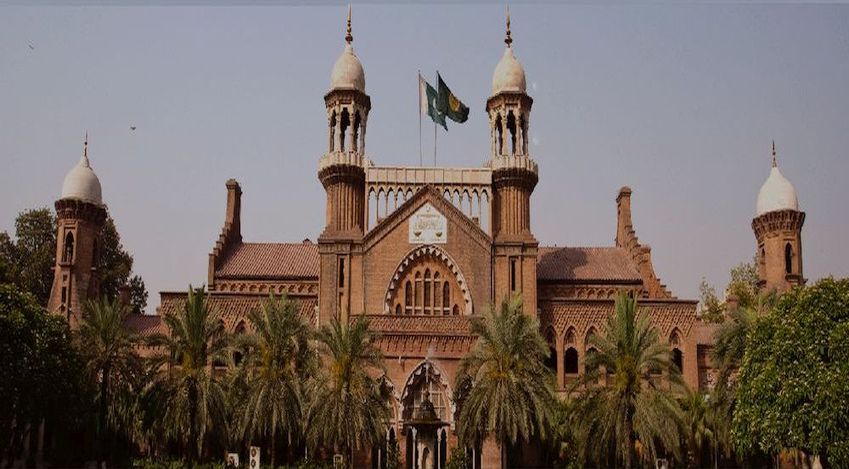Disputes regarding Corporate Directorship fall under the Exclusive Jurisdiction of the Company Bench of LHC --- Lahore High Court, Lahore
Islamabad 05-03-2025: In a significant ruling, the Lahore High Court has reaffirmed the exclusive jurisdiction of the Company Bench in matters related to corporate directorship and dismissed a Civil Revision Petition filed by Petitioner against Punjab Cooking Oil Private Limited & Others.
The case, [Civil Revision No. 76005 of 2019], was brought before Mr. Justice Shujaat Ali Khan, challenging the Customs authorities’ auction of the Petitioner’s property and his continued listing as a director in the records of the Securities and Exchange Commission of Pakistan (SECP).
The Petitioner filed a Civil Suit seeking a declaration that he had ceased to be a director of Punjab Cooking Oil Private Limited as of January 6, 2001. He further challenged the Customs authorities’ action of attaching and auctioning his property due to liabilities associated with the company.
The Civil Court rejected the suit under Order VII Rule 11 of the Civil Procedure Code (CPC), citing lack of jurisdiction, a decision later upheld by the Additional District Judge, Lahore. The petitioner then moved the Lahore High Court in revision.
The Court held that under Section 197(5) of the Companies Act, 2017, disputes regarding inclusion or removal of a director from company records can only be adjudicated by the Company Bench of the Lahore High Court.
- “From the definition of ‘Court’ in Section 2(23) of the Companies Act, 2017, it is crystal clear that no other forum except the Company Bench of this Court can deal with a matter relating to addition/deletion of a director’s name from the register.”
Citing the Supreme Court’s decision in Muhammad Iqbal Vs. Nasrullah (2023 SCMR 273), the Court reiterated that special laws take precedence over general laws, thereby ousting the civil Court’s jurisdiction.
The Companies Act, 2017 provides for exclusive jurisdiction of Company Benches and ousts the Civil Court’s jurisdiction under Section 5(2). Additionally, Section 4 of the Act states that it has overriding effect over other laws.
The Court reinforced that Civil Courts cannot entertain matters where jurisdiction is expressly barred.
- “Section 9 of the Civil Procedure Code, 1908 states that civil Courts shall have jurisdiction unless expressly or impliedly barred. In the present case, jurisdiction is explicitly ousted by Section 5(2) of the Companies Act, 2017.”
This principle was further supported by Mst. Zahida Sattar Vs. Federation of Pakistan (PLD 2002 SC 408), where the Supreme Court ruled that civil Courts cannot assume jurisdiction over matters covered under special laws.
The Lahore High Court held that Order VII Rule 11 CPC was correctly applied in rejecting the suit, as it was barred by law.
- “When a matter falls exclusively under a special law, civil Courts lack jurisdiction, making the rejection of the plaint under Order VII Rule 11 CPC legally justified.”
The Court also noted that while deciding an application under Order VII Rule 11 CPC, Courts are not limited to the contents of the plaint alone but can consider other material on record. This aligns with S.M. Sham Ahmad Zaidi Vs. Malik Hassan Ali Khan (2002 SCMR 338).
The Petitioner argued that SECP’s written statement supported his claim that he was wrongly listed as a director. The Court, however, ruled that a written statement is not conclusive evidence unless tested through judicial scrutiny.
- “Even if SECP’s Written Statement had conceded the claim, it could not be accepted as proof without examination in evidence.”
This principle was supported by Muhammad Ejaz Vs. Khalida Awan (2010 SCMR 342), which held that a conceding written statement cannot be considered as binding evidence without proper adjudication.
The Petitioner also contested the auction of his property by Customs authorities. The Court observed that liabilities of a company must be settled by the company’s assets before action is taken against its directors.
- “The Customs authorities were required to first recover the assessed amount from the company’s assets before proceeding against individual directors.”
This principle aligns with Anjum Rashid Vs. Shehzad (2007 CLD 1210) and Messrs Sakhi Dattar Cotton Industries Vs. Authorized Partner (2006 CLD 191), which state that a company’s liabilities are separate from its directors’ personal assets.
The Court upheld the concurrent findings of the trial and appellate Courts, emphasizing that Lahore High Court should not interfere with lower Court rulings unless they are arbitrary or capricious.
- “There are concurrent findings of the Courts below which cannot be interfered with in routine unless they are found to be arbitrary or capricious.”
This aligns with the Supreme Court’s ruling in “Mst. Zahida Sattar Case” (PLD 2002 SC 408), which limits Lahore High Court interference in well-reasoned lower Court decisions.
The Lahore High Court dismissed the revision petition and upheld the lower Courts’ decision to reject the suit, ruling that the petitioner must seek remedy before the Company Bench of the Lahore High Court.
“For what has been discussed above, I have no hesitation to hold that the suit filed by the petitioner before the Civil Court was not maintainable, thus the findings of the Courts below are unexceptionable. Consequently, this petition is dismissed.”
Powered by Froala Editor








